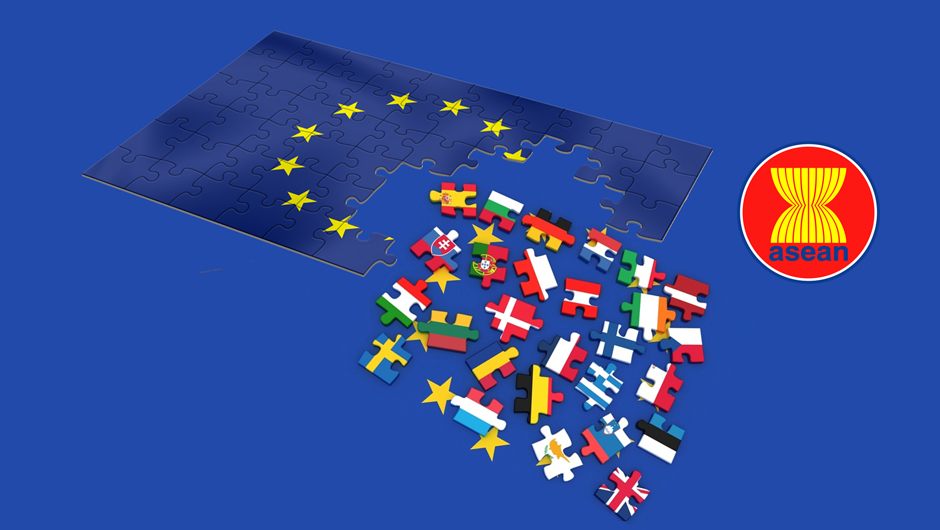EU and ASEAN: Different history, common goals

Why does the European Union exist?
Europe is actually a small place with many small to middling states. There is a long history of cultural overlap, exchange and synthesis, whether you look at religion, with Christianity playing a formative role, at philosophy and law with ideas going back to Greek and Roman antiquity shaping societies and institutions, trade routes that go back millennia, like in the case of Roman roads, down to music, painting and architecture.
At the same time, the multitude of competing states has led to a horrible history of violent conflict, with Germans and French fighting a war in almost every generation during the last 300 years, some of which left a legacy of devastation that took decades to heal. So Europe also has a history of trying to find institutional ways to manage these conflicts, usually after major wars, when you think of the peace of Westphalia after the thirty years war or the Vienna congress after the Napoleonic wars. WWI ripped Europe apart, and the subsequent peace treaty did not lead to reconciliation.
After WWII European leaders were ready for a more thorough cooperative solution, and this was aided by both the external threat of the Soviet Union and the gentle pressure and encouragement of the USA.
So the EU was, first and foremost, a political idea to keep the peace, but it was also built on the foundation of a solid economic argument, namely that your neighbors are your natural trading partners, and that opening your markets first to your neighbors and then to the wider world would be a smooth and natural progression. This has worked very well – the single market in Europe has underpinned prosperity in myriad ways.
Despite some of the problems that the EU is facing, these basic ideas still work – and it gives European countries a framework that ensures that they are neither completely dependent on the US nor have to say yes to everything Russia wants. These basic ideas, that regional cooperation can help keep the peace, that integrating markets increases prosperity, and that a regional structure provides strength towards big powers, are valid in general, not just in Europe.
Southeast Asia has its own historical baggage and points of tension to contend with, and ASEAN has played a crucial, if underappreciated role in containing these. The market liberalization in ASEAN has delivered rising prosperity and it has encouraged countries of the region to open up their economies and join ASEAN.
So while the history and culture of Europe is very different from Southeast Asia, some of the fundamental structural issues that shape international cooperation exist in both regions, and regional cooperation has something to offer in both parts of the world, even if the institutional arrangements and the speed of integration differ.
Siggi Herzog talks about the benefits of regional cooperation both in EU and the ASEAN.